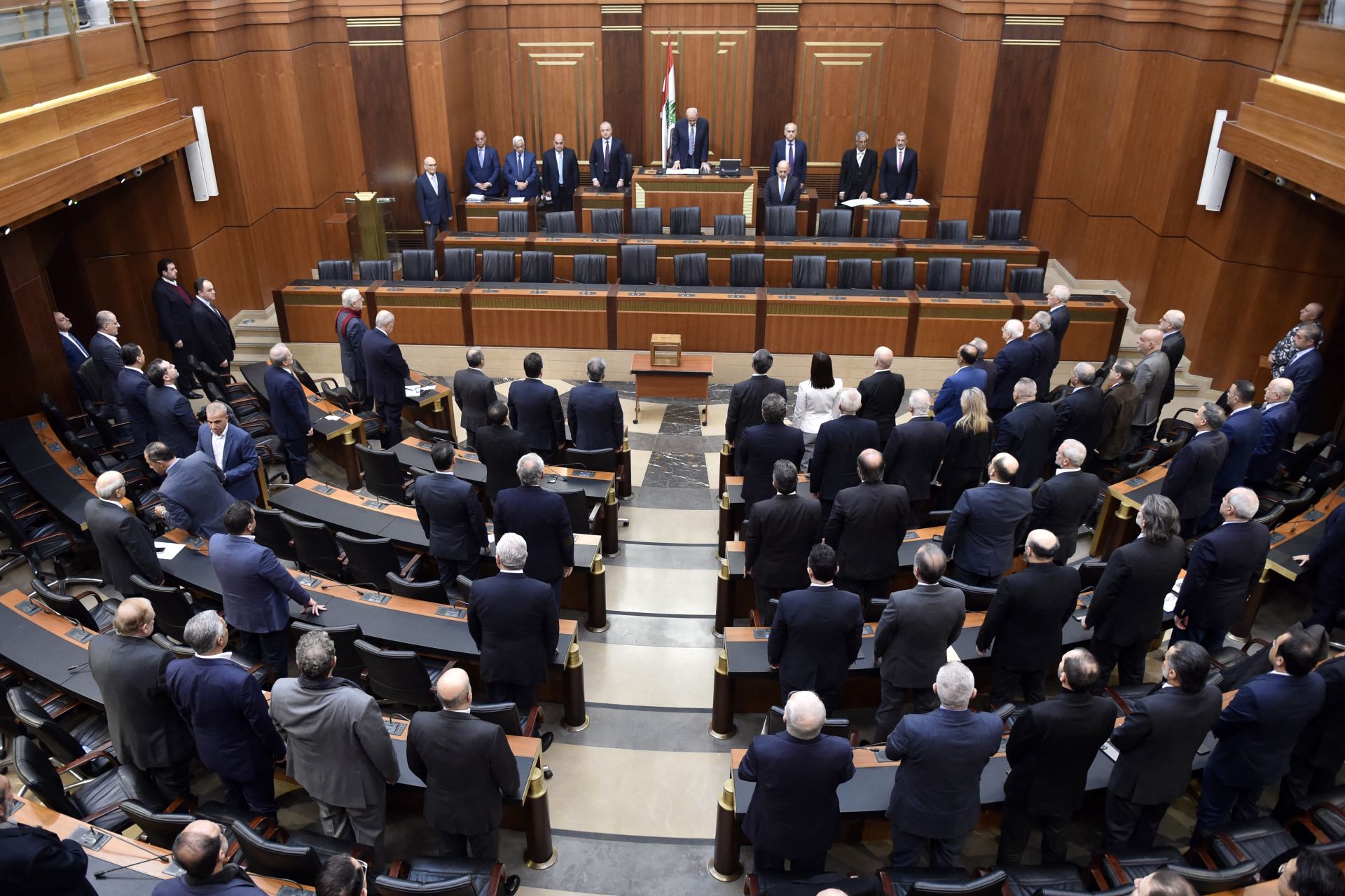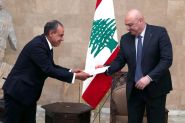
The thirteenth session for the election of a President of the Republic opened with a dispute between those who contest the election of the Commander-in-Chief of the Army, General Joseph Aoun, who enjoys a large parliamentary majority, and those who want Lebanon to finally have a President.
MP Melhem Khalaf, an ally of the Speaker of the House, kicked off the session by warning of potential constitutional violations. He was followed by Free Patriotic Movement (FPM) leader Gebran Bassil, who has been an outspoken critic of General Aoun. Bassil delivered a lengthy speech, accusing Lebanon of being subjected to foreign influence and focusing on “principles” that he typically disregards based on circumstances.
In a similar vein, Jamil el-Sayed and Oussama Saad weighed in, though less aggressively, prompting MP Paula Yaacoubian to accuse them of having a “selective and tailored” attachment to the Constitution.
FPM MP Selim Aoun reacted violently, using abusive language to respond to Yaacoubian, who in turn retorted strongly. A violent argument ensued, until the Speaker of the House, Nabih Berri, intervened to restore order.
Largely supported by the international community and benefiting from a clear parliamentary majority, the head of the army is virtually assured of a triumphant entry into the Baabda palace, after more than two years of vacancy.
To secure victory, Joseph Aoun needs to obtain two-thirds of the votes—86 MPs—which could indirectly require a constitutional amendment. This is because electing a senior civil servant like Aoun would necessitate such a modification, as was stated at the beginning of the session, when Article 49 of the Constitution was mentioned, with particular emphasis on paragraph 3, which provides for the resignation of a civil servant, two years before the end of a presidential term, if he or she wishes to stand for election.
But MPs Michel Moawad and Samy Gemayel recalled the precedent of 2008, when President Michel Sleiman, then commander-in-chief of the army, was elected head of state without any prior amendment to the Constitution. Both referred to a “selective interpretation of the Constitution” and stressed the urgent need for Lebanon to have a president.
Today, only a few parliamentarians, notably those from Hezbollah and the Free Patriotic Movement, remain divided over a candidate and seem intent on continuing to obstruct the presidential election.



Comments